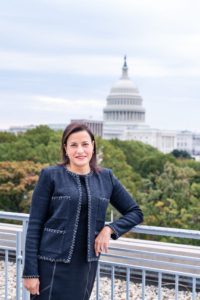We are thrilled to have an impressive line-up of prominent leaders, influencers and change-makers speaking at our 2021 Virtual Annual Conference on November 3. We will be introducing these dynamic and engaging speakers here on our blog. We asked our speakers to answer a few questions about themselves and hope you find the answers as fascinating as we do!
This week’s “Getting To Know Our Conference Speakers” post highlights Peter Katz a JUNO-Nominated Musician and Storyteller. Peter is going to close out the afternoon with a “Keynote Concert” – part concert and part keynote! Through his presentation, “Showing Up Wholeheartedly in Our Lives,” Peter hopes to pull attendees in and leave them inspired to show up with purpose every day.
Read on to learn more about this inspirational singer-songwriter’s advice, personal mantra and vision for the future.
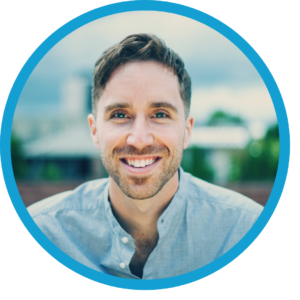 Diversity & Flexibility Alliance: What is the most meaningful advice you have received? Who has had the most influence on your career?
Diversity & Flexibility Alliance: What is the most meaningful advice you have received? Who has had the most influence on your career?
Peter Katz: I’ve received a lot of great advice in my life, but the thing that first comes to mind is the notion that ‘feeling is healing’ that my best friend Joce (who also happens to be an incredible therapist) shared with me. Essentially, the way to the other side of our dark moments is walking right through them. Our typical reflex is to numb, to distract, to avoid, and that never gets us closer to the other side. So I’ve trained myself (as much as possible), to allow the feelings, to get curious about them, to sit next to them and listen to what they have to say, and as I do that, I find that I’m able to move through them with greater completion, more wisdom learned and deeper inner-peace.
As far as biggest influence on my career, that’s a hard one to narrow in on, but I’ll go with my mindfulness coach Dr. Tammy Berger. She has been a stabilizing force over the last several years, allowing me to tune in to my inner-knowing and make decisions from that place. It’s a bumpy ride, I haven’t perfected it by any stretch of the imagination, but that work with her has fundamentally shifted my ability to function in the world on all levels, including in my career.
DFA: What have you learned in the last year that has changed your perspective? Have there been silver linings to the pandemic?
PK: I’ve been reflecting a lot over the last year about the lens through which I see the world. Beyond the pandemic, I’ve been keenly aware of the social injustices, systemic racism and history of oppression that has permeated our world. And as I’ve become increasingly aware of it, I’ve become increasingly aware of how privileged I’ve been in relation to it all. So much of the last year has been about listening and learning and seeking to notice the lens, and then see what I can do about creating a more connected and more just world through how I show up within it.
There has been a major silver lining professionally from the pandemic in that I embraced the virtual modality of presenting and performing very early on. I was quick (and privileged to be in a position) to invest in the gear, learn the skills and get myself up and running on virtual, and it has lead to the best year I’ve ever had professionally. I’ve been able to speak/perform to over 50,000 people virtually since this all began which is pretty staggering to me. Being able to be virtual means I can do multiple events in a day, reach people anywhere in the world, and really create impact with greater reach and efficiency than ever before. I certainly miss in-person, but I’m grateful for the way I’ve been able to rapidly expand my network and impact through the emergence of virtual work.
DFA: What do you know now that you wish you knew then?
PK: Oh gosh… the list is long! I wish I knew the price of housing was going to do what it did… But I think the thing I know now for certain is that I can actually survive anything. I don’t know that I realized just how resilient I am, and had I known that then, maybe I would have stressed a little less when everything fell apart.
DFA: How do you pay it forward or inspire others?
PK: I have always tried to approach whatever I’m doing out in the world from a place of service. It’s actually sound business to do things from a place of service (because if you actually make people’s lives better, they will tend to be repeat customers), but more than business, I truly ask myself “what’s in it for them?” vs “what’s in it for me?” I try to embrace the notion that there’s enough out there for everyone. So, for example, as soon as I had a handle on how to give performances and talks virtually, I created free resources to help other artists and speakers rise up and be able to do the same. Some people advised me not to do that as I would be helping the “competition,” but I just wanted to raise the game for everyone. As a result, I literally had hundreds of musicians and speakers reach out to me saying that my resources helped them make the shift and get back working. And, I still had the best year I’ve ever had, so there’s room enough for everyone. I guess I feel like it’s our duty, when we climb out of a hole, to turn around and help lift the next person up.
DFA: What can we be doing to create more inclusive organizations?
PK: I think it comes down to asking great questions, and to allowing equal hearing of the voices responding. How do you create situations where every voice has a chance to be truly heard? You ask great questions, and you create containers where everyone can turn to someone else and share that answer. You guide that process with a sound understanding of what creates psychological safety, and you listen to/implement from what emerges. The wisdom is in the room, it’s in the people who make up the ecosystem. It takes courage and humility as leaders to admit we don’t have the answers, and it’s also very liberating to free ourselves from that pressure. Our job is not to have the answers, it’s to create the conditions for the answers to emerge.
DFA: What’s your vision for the workplace of the future?
PK: I see the workplace of the future as one that embodies the word ‘humanity’. Where there is less of a disconnect between who we need to be on the outside, and how it feels to be who we are on the inside. Of course there’s still professionalism and standards, but we need to recognize that we are human. And as humans, we can only deliver our best, most creative, most innovative, most inspired work when we have taken care of our human-ness. When we are well fed, well rested, connected to nature, connected to love and to each other, then we can do our best work. The physical and emotional state that we’re in, is far more important than whatever it is we’re trying to do, and whatever it is we’re trying to do will be so much greater if those foundations are in place.
DFA: What book is on your nightstand? Or what TV shows got you through the lock down?
PK: I have about 20 pages left of ‘Who Not How’ by Dan Sullivan and Benjamin Hardy which I have LOVED. Totally rethinking how I structure my business and life. And I also just started reading “Permission to Feel” by Marc Brackett. I’m only about 30 pages in to that one but wow, also totally inspiring and ties back to that ‘feeling is healing’ notion I was mentioning earlier. Very powerful so far.
As far as TV shows, I’m the worst when it comes to pop culture as I haven’t seen any of the shows, but I did watch ‘The Office’ for the first time during the pandemic and wow… what a gem of a show that is. Brought me a LOT of joy watching that 🙂
DFA: What’s your personal mantra?
PK: For the longest time my mantra has been ‘A year from now you’ll wish you started today,’ but I’m leaning towards new mantras these days (I still like that one, but I think I’m good at this point in the motivation department. I’m more interested in feeling my human-ness). I have a little mantra I say every morning that I got from my mindfulness coach (which comes from Metta meditation). I say “may I be free from pain and suffering, may I be filled with loving kindness, may I meet each moment with an open heart’ (and then I send that out to others). I like that mantra a lot. It has been very grounding and calming.
Don’t miss Peter Katz and our other 2021 Speakers on
Wednesday, November 3.
Register now!
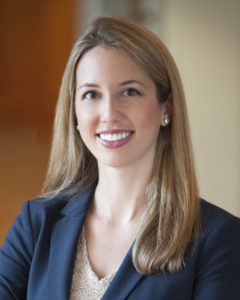 Elise Attridge: After my first child was born in 2016, I started working at an 80% reduced hour schedule. At that time, I had been a Litigation Associate at Morgan Lewis for five years.
Elise Attridge: After my first child was born in 2016, I started working at an 80% reduced hour schedule. At that time, I had been a Litigation Associate at Morgan Lewis for five years.
 Diversity & Flexibility Alliance:
Diversity & Flexibility Alliance: 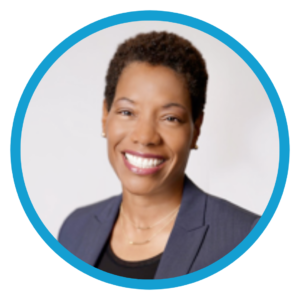
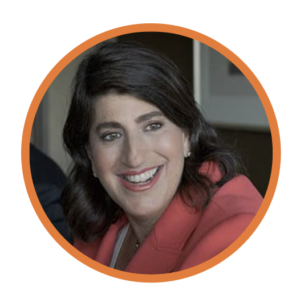 Diversity & Flexibility Alliance: What is the most meaningful advice you have received? Who has had the most influence on your career?
Diversity & Flexibility Alliance: What is the most meaningful advice you have received? Who has had the most influence on your career?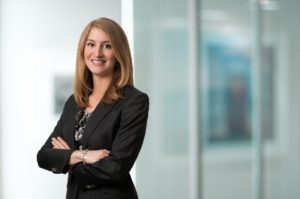 Diversity & Flexibility Alliance: How have you made flexibility a priority and a success with your schedule? How has the firm and/or your clients contributed to this?
Diversity & Flexibility Alliance: How have you made flexibility a priority and a success with your schedule? How has the firm and/or your clients contributed to this?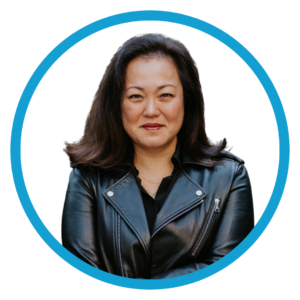 Sang Lee: Loosely translated from Korean, which is the language through which the insight was dispensed, the most meaningful advice I’ve received – and try to incorporate into every aspect of my life – is, “If you’re going to grab at life, grab it with big hands.” My father, mother, two older sisters and I moved to the United States from Korea in 1976. Soon after our arrival, my father opened a wholesale jewelry business and operated it for 20 years out of a small and uncomfortable 350-square foot storefront. Despite the micro nature of his commercial footprint in NYC, my father never kept his belief system, his business strategies, or his dreams small. His influence on my career remains profound. Today, when I work through a nuanced decision, I still assess how my father might approach a challenging situation or undeveloped opportunity. I remind myself often to live a big-handed life.
Sang Lee: Loosely translated from Korean, which is the language through which the insight was dispensed, the most meaningful advice I’ve received – and try to incorporate into every aspect of my life – is, “If you’re going to grab at life, grab it with big hands.” My father, mother, two older sisters and I moved to the United States from Korea in 1976. Soon after our arrival, my father opened a wholesale jewelry business and operated it for 20 years out of a small and uncomfortable 350-square foot storefront. Despite the micro nature of his commercial footprint in NYC, my father never kept his belief system, his business strategies, or his dreams small. His influence on my career remains profound. Today, when I work through a nuanced decision, I still assess how my father might approach a challenging situation or undeveloped opportunity. I remind myself often to live a big-handed life.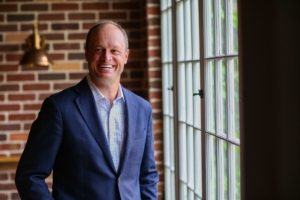 Featuring
Featuring 